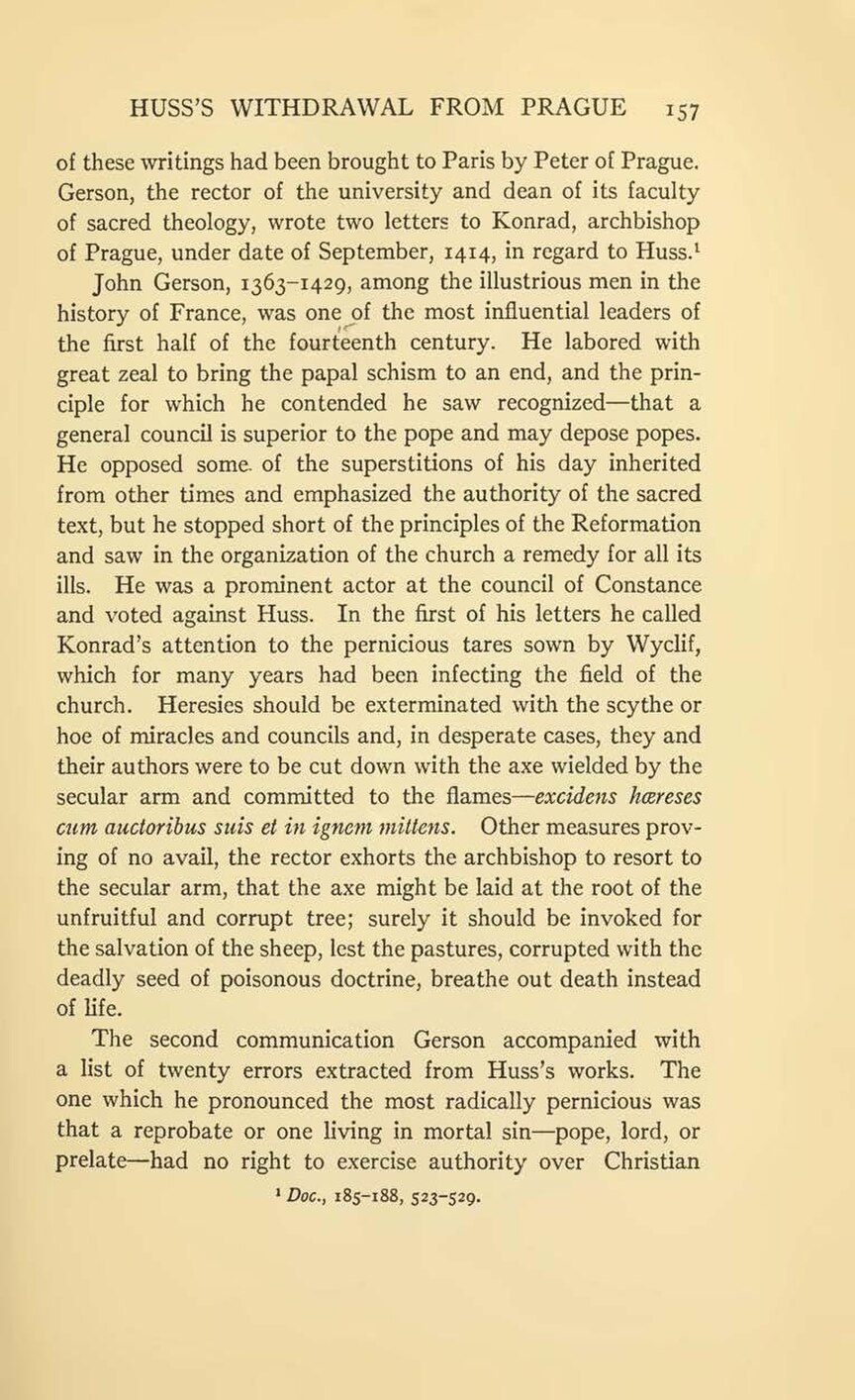of these writings had been brought to Paris by Peter of Prague. Gerson, the rector of the university and dean of its faculty of sacred theology, wrote two letters to Konrad, archbishop of Prague, under date of September, 1414, in regard to Huss.[1]
John Gerson, 1363–1429, among the illustrious men in the history of France, was one of the most influential leaders of the first half of the fourteenth century. He labored with great zeal to bring the papal schism to an end, and the principle for which he contended he saw recognized—that a general council is superior to the pope and may depose popes. He opposed some of the superstitions of his day inherited from other times and emphasized the authority of the sacred text, but he stopped short of the principles of the Reformation and saw in the organization of the church a remedy for all its ills. He was a prominent actor at the council of Constance and voted against Huss. In the first of his letters he called Konrad’s attention to the pernicious tares sown by Wyclif, which for many years had been infecting the field of the church. Heresies should be exterminated with the scythe or hoe of miracles and councils and, in desperate cases, they and their authors were to be cut down with the axe wielded by the secular arm and committed to the flames—excidens hæreses cum auctoribus suis et in ignem mittens. Other measures proving of no avail, the rector exhorts the archbishop to resort to the secular arm, that the axe might be laid at the root of the unfruitful and corrupt tree; surely it should be invoked for the salvation of the sheep, lest the pastures, corrupted with the deadly seed of poisonous doctrine, breathe out death instead of life.
The second communication Gerson accompanied with a list of twenty errors extracted from Huss’s works. The one which he pronounced the most radically pernicious was that a reprobate or one living in mortal sin—pope, lord, or prelate-had no right to exercise authority over Christian
- ↑ Doc., 185–188, 523–529.
